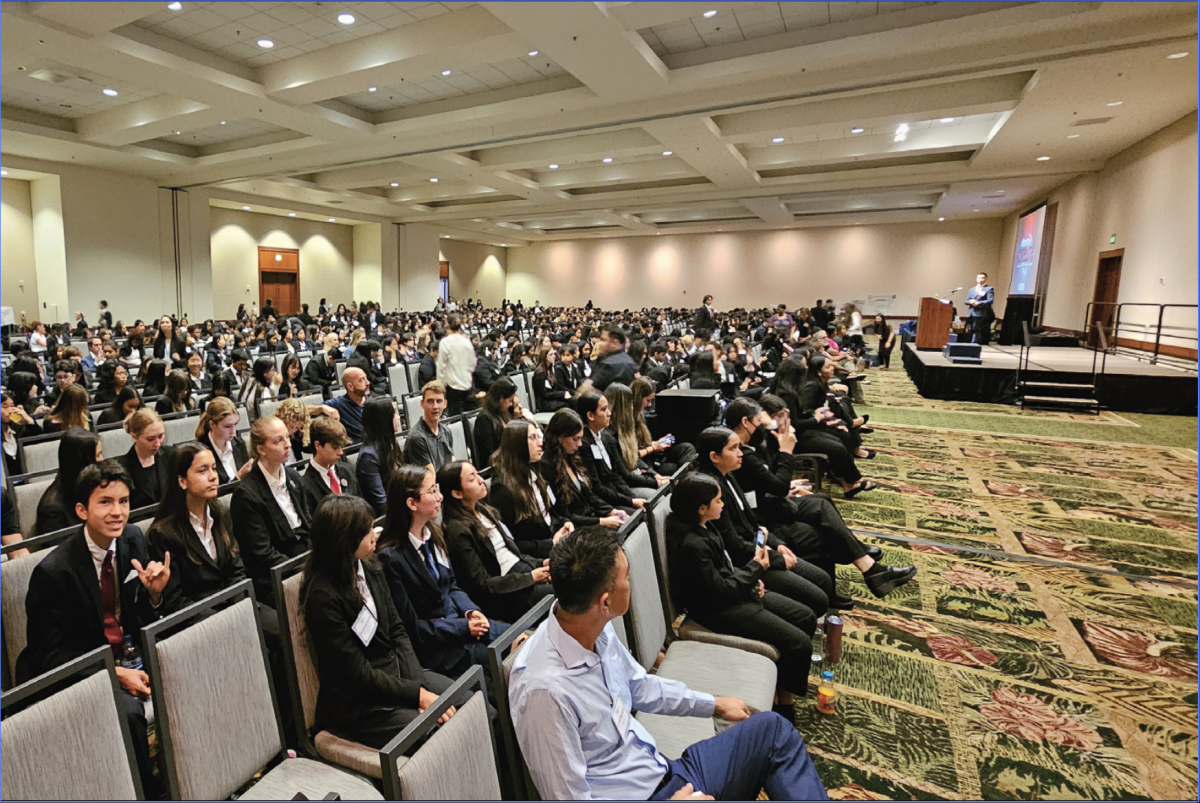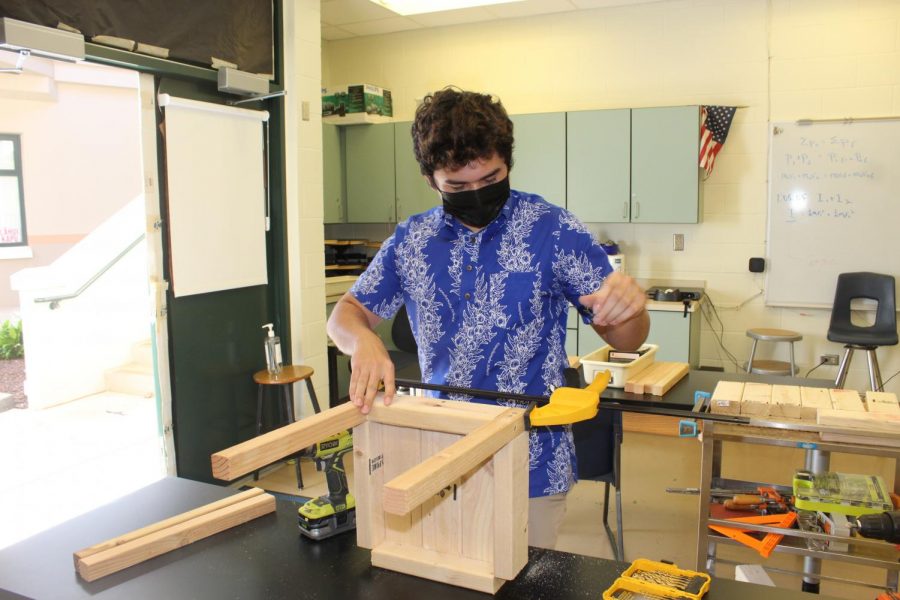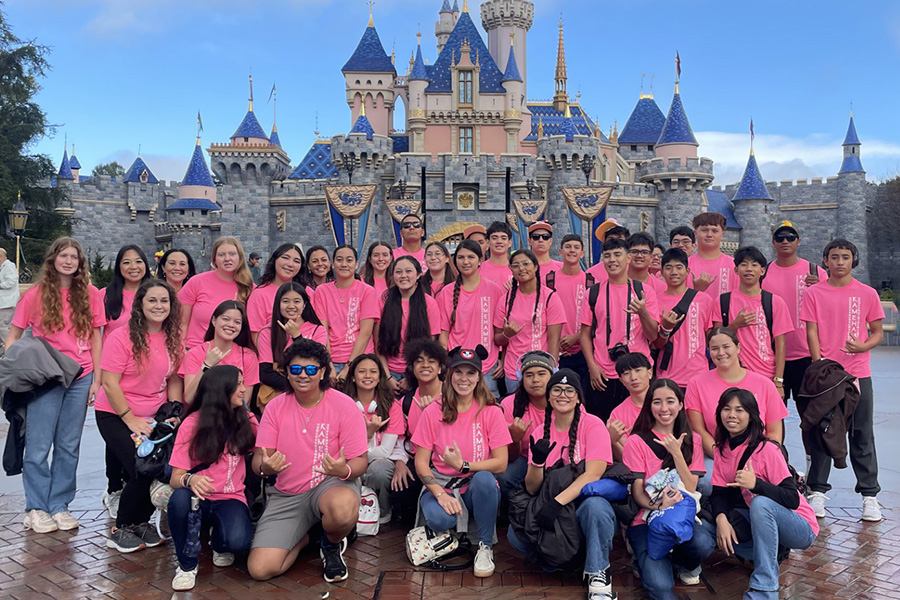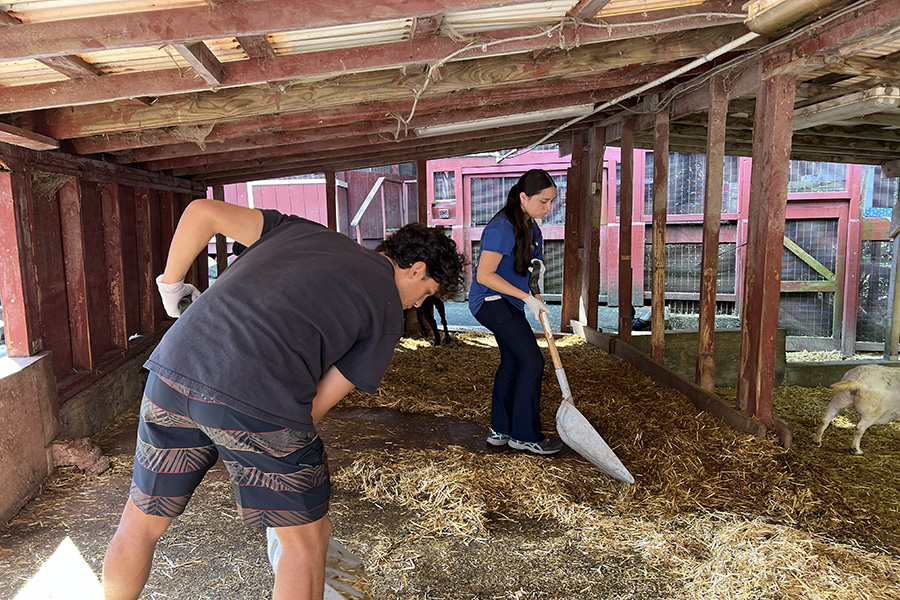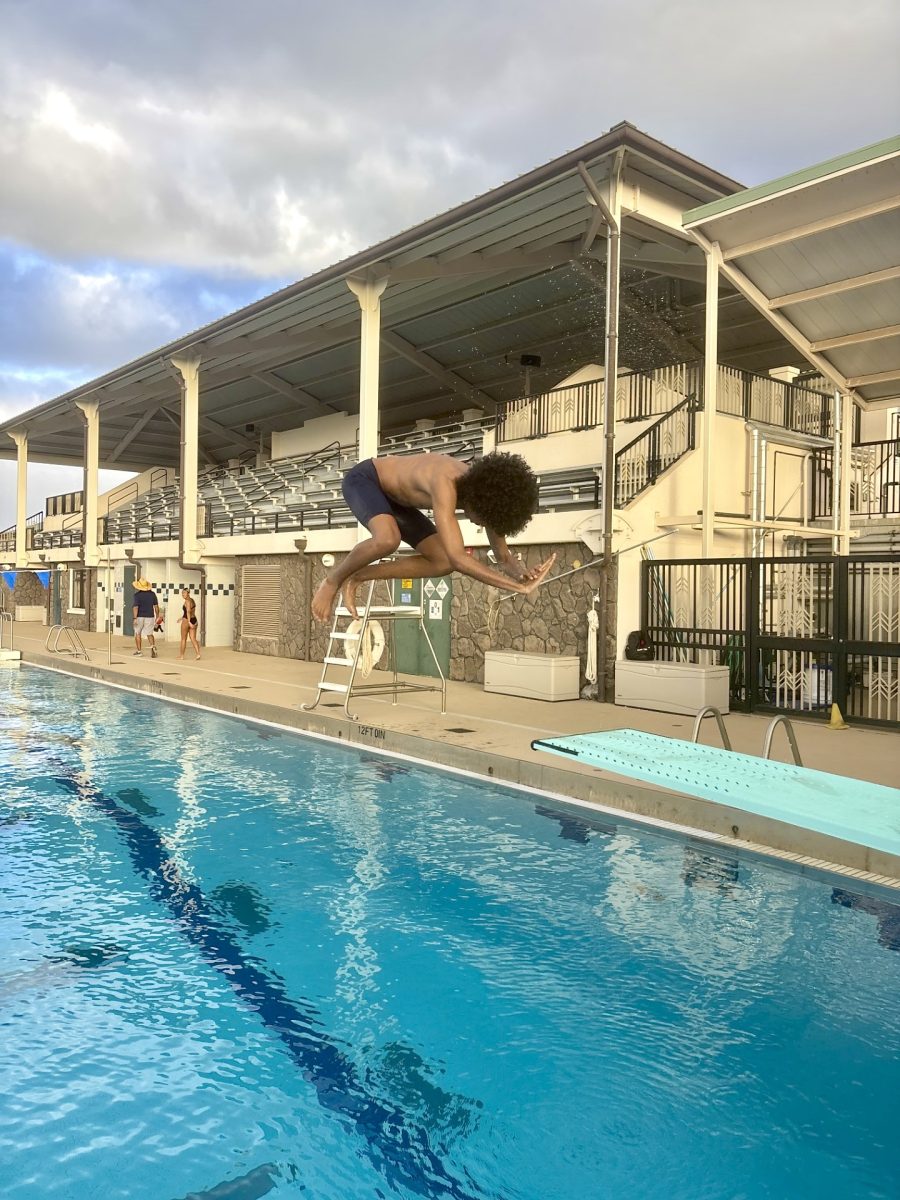For the first time in approximately 150 years, the Hawaiʻi Supreme Court held a hearing on the island of Maui as part of a new program called Courts in the Community, in which the Supreme Court leaves their Honolulu courthouse and takes hearings into the community to make them more accessible to the public.
Over 500 Maui high school students, including KS Maui students from Global Studies, attended the hearing and asked questions of the attorneys and justices afterward. The hearing was held at the Baldwin High School auditorium on December 6, 2012.
“I was really excited,” Senior Tori Ching said. “It was exactly what I had expected.”
This was the second of these events this year. In March, another case was heard at Farrington High School on O’ahu. Yesterday’s event was the first off-island hearing.
“ʻOahu held their own Courts in the Community Event a few months ago, which worked out very well,” said Mr. Kealiʻi Mossman, Global Studies teacher. “They brought it over to Maui, which proved to be easier since all the schools are in a centralized area.”
The Supreme Court of Hawai’i’s community relations office sent information on the case to the schools ahead of time, so students would have a better understanding of the case.
On September 19, 2007, narcotics and other drug paraphernalia were allegedly found in defendant Stephen Cramer, Jr.’s vehicle. He was later charged by the State of Hawaiʻi with three offenses: promoting a dangerous drug in the second degree, prohibited acts related to drug paraphernalia, and promoting a detrimental drug in the third degree.
Cramer was later admitted into the Maui Drug Court Program, where, if successfully complete, the charges against him would have been dismissed, and he would not have had to face a trial.
His participation in the program was terminated on July 21, 2010, for violating two conditions of the program: not remaining clean and sober and not giving truthful answers to the questions asked by the drug court judge and staff.
At his sentencing hearing, Cramer sought to substitute his Public Defender with private counsel and requested a 3-week continuance to allow private counsel to prepare for the sentencing. The court denied both requests as untimely and sentenced Cramer to ten years in prison, finding that he did not satisfy the requirements of Act 44, which would have allowed for a sentence of probation.
Cramer challenged the trial court’s ruling, appealing to the Intermediate Court of Appeals on the grounds that the trial court violated his constitutional right to counsel of his choice when it denied his motion to switch from a court-appointed Public Defender to private attorney Hayden Aluli.
The Intermediate Court of Appeals found that the trial court did not abuse its discretion in denying Cramer’s request for new counsel and a continuance. Cramer appealed again to the Hawaiʻi Supreme Court. For his appeals to the ICA and the Hawaii Supreme Court, Cramer was allowed to switch his attorney to Aluli.
The Supreme Court heard oral arguments and is now adjourned to deliberate. When they come to a decision, they will publish it online and in the Hawaii Reports legal series.
Students were allowed to stay in the auditorium after the hearing to ask the attorneys and justices technical questions.
Being allowed to ask the justices questions was an unprecedented opportunity to learn more about the role of the Hawaiʻi Supreme Court.
The KS students who attended the hearing had prepared for weeks and were anxious to ask questions about the case and its handling as it has moved through the judicial system.
After much jockeying for a turn at the microphone, the only Kamehameha Maui student selected to ask a question was senior Nalani Kikuyama.
She asked about how the court weighs the argument that a previous case is “distinguishable” from the case at hand.
The questions of students from other schools were more personal in nature and unrelated to the case specifically.
“Our students were critical of the other students who didn’t take advantage of this opportunity [to ask questions about the case],” Mr. Mossman said. “Asking them these technical questions is not something they allow you to do usually.”

![Prosecuting attorney, Artemio Baxa [left], and defending attorney, Hayden Aluli [right], answer student questions after the case hearing.](https://kaleoonakoa.org/wp-content/uploads/2012/12/Artemio-Baxa-and-Hayden-Aluli.jpg)



